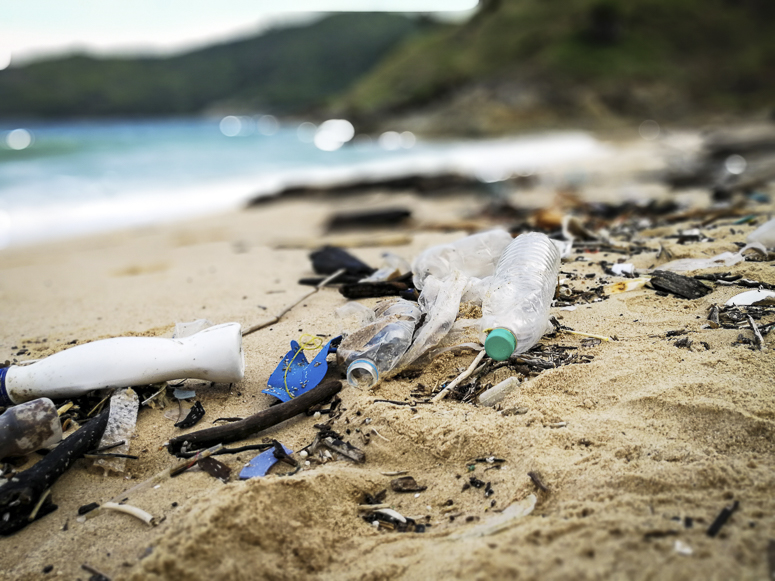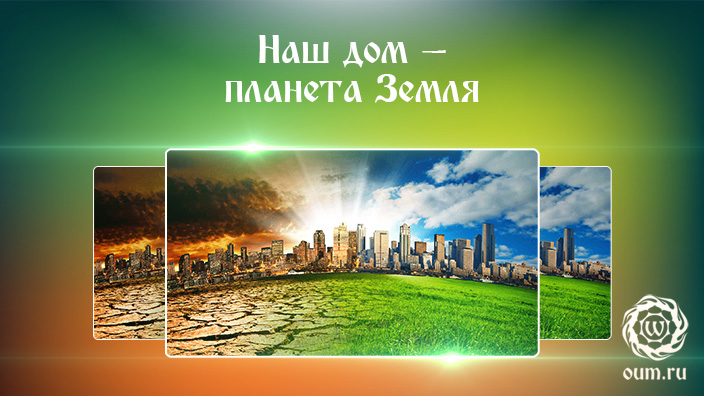Today it is difficult to overestimate the importance and role of ecology both in the life of the whole society and separately in the life of each person. Likewise, the state of the planet depends both on commercial companies that produce tons of waste every year, and on the individual who enjoys the benefits of civilization.
A little history
Throughout known history, humanity has developed and, along with it, its concepts about the world around us have developed. Very early, people realized that natural gifts must be used wisely, without destroying the natural balance between man and the planet.
This is confirmed by rock paintings that speak of human interest in the environment.
From more recent data it is known that nature conservation was actively practiced in Ancient Greece, where residents protected the beauty of natural forests.
Modern look
Now ecology is interpreted as a science that studies the interaction of living organisms with each other, as well as with the environment.
Any organism living on the planet is influenced by many factors: favorable and unfavorable. All these factors can be divided into two groups: biotic and abiotic. Biotic include those that come from living nature; to abiotic - those carried by inanimate nature. For example, an orchid growing on the bark of a tree is an example of symbiosis, that is, a biotic factor, but the direction of the wind and weather conditions affecting these two organisms are already an abiotic factor. All this creates conditions for the natural evolution of living organisms on the planet.
But here another important aspect appears that significantly influences the state of the environment - this is the anthropogenic factor, or the human factor. Deforestation, diversion of rivers, mining and development of minerals, release of various toxins and other wastes - all this affects the environment where such impacts are produced. As a result, biotic and abiotic factors in this area undergo changes, and some of them even disappear.
In order to regulate environmental changes, scientists have identified the main tasks that ecology must solve, namely: the development of laws for the reasonable use of natural resources, based on the general principles of the organization of life, as well as the timely solution of environmental problems.
For this, environmental scientists have identified four basic laws:
- everything is connected to everything;
- nothing disappears into nowhere;
- nature knows best;
- nothing is given for nothing.
It would seem that compliance with all these rules should lead to a reasonable and harmonious use of natural gifts, but, unfortunately, we are seeing a different trend in the development of this area.

Why is this happening? Why does the role of ecology in the lives of many people still remain in the background? Any external problem is only a reflection of human consciousness. Most people are not even aware of what is hidden behind the results of their daily life activities.
Aspects of nature affected by anthropogenic factors
The sharp increase in consumer lifestyle has led to unwise use of natural resources. The rapid development of scientific and technological progress, the large-scale growth of human agricultural activity - all this has aggravated the negative impact on nature, which has led to a serious disruption of the ecological situation on the entire planet. Let's consider the main natural aspects that are most susceptible to environmental crisis.

Air
Once upon a time there was a different atmosphere on Earth, then it happened that oxygen appeared on the planet, and after it aerobic organisms formed, that is, those that feed on this gas.
Absolutely all aerobic creatures depend on oxygen, that is, on air, and our life activity depends on its quality. Everyone knows from school that oxygen is produced by plants, therefore, given the current trend of deforestation and the active growth of the human population, it is not difficult to guess what the destruction of fauna leads to. But this is only one of the aspects affecting the state of the atmosphere of our planet. In reality, everything is more complicated, especially in large populated cities, where, according to medical standards, the concentration of toxic substances is tens of times higher.
Water
The next equally important aspect of our life is water. The human body consists of 60–80% water. 2/3 of the entire earth's surface consists of water. Oceans, seas, and rivers are constantly being polluted by humans. Every day we “kill” the world’s oceans with oil production in offshore fields. Oil spills threaten the lives of marine life. Not to mention the garbage islands continuously drifting across the surface of the oceans and seas.

Fresh water is most vulnerable to human ignorance. Sewage, various toxins such as mercury, lead, pesticides, arsenic and many other “heavy” chemicals poison rivers and lakes every day.
Earth
The main foundation of life on earth is soil. It is known that for the Earth to be able to create one centimeter of black soil, it will take about 300 years. Today, on average, one centimeter of such fertile soil dies in three years.
Climate
The combination of all environmental problems leads to climate deterioration. Climate can be compared to the health of the planet. When individual “organs” of the Earth suffer, this has a direct impact on the climate. For many years now we have been observing various anomalies due to climate change, the causes of which are the anthropogenic factor. Human intervention in the activities of nature has led to sudden warming or cooling in certain areas, rising sea levels due to the rapid melting of glaciers, abnormal amounts of precipitation or its absence, as well as severe natural disasters and much more.
The main thing is not focusing on the list of problems, but understanding the reasons for their occurrence, as well as concentrating on effective ways and means of solving them.
Areas of our lives affected by ecology
What is the role of ecology in human life? As for absolutely everything that we all deal with every day, every second of our lives; without which life, such as it is now, could not exist?

Health
Health is like a constructor, on whose individual parts its condition as a whole depends. There are many such factors, the main ones are known to everyone - this is the lifestyle, nutrition, human activity, the people around him, as well as the environment where he lives. Ecology and human health are closely interconnected. If there are violations on one side, the other reacts accordingly.
A person living in a city is many times more likely to develop a serious illness than a person living in the suburbs.
Nutrition
When a person eats incorrectly, his metabolism is disrupted, which in turn leads to more serious health problems. It is worth remembering that these disorders can also affect future generations.
The main problem for human health is chemicals, mineral fertilizers, pesticides that are used to treat agricultural fields, as well as the use of additives and dyes to improve the appearance of products, preservatives to increase the shelf life of products, and much more.
There are known cases of adding compounds of heavy metals and other elements unfavorable to the human body, such as mercury, arsenic, lead, cadmium, manganese, tin and others.

Poultry and cattle feed contains many toxins that can cause cancer, metabolic failure, blindness and other serious diseases.
To protect yourself and your loved ones, you need to be careful about the products you buy. Study the composition and symbols printed on the packaging. Do not support manufacturers who are indifferent to your fate and the state of our planet. Pay special attention to E-supplements with three-digit numbers, the meaning of which can easily be found on the Internet and thereby live a longer and happier life.
Vital activity and mood
The state of health and quality of nutrition are the determining factors of human activity and vitality. As we see, all these factors can be associated with the state of ecology on our planet, on which we directly depend. Leading a healthy lifestyle, practicing yoga and self-knowledge, it is simply impossible to be indifferent to the environment. When we are in nature, breathing fresh air, eating clean, home-grown food, our life changes its quality. The state of mind is also transformed, which harmonizes the mood and attitude towards life in general.
Karma
Everything in this world is natural; everything we do, one way or another, comes back to us, immediately or later - it doesn’t matter. If we take care of ourselves and the world where we now live, save resources, think about nature, live according to our conscience, then the environmental situation on the planet will improve - and we will not have to pay for our own recklessness and inattention.
Live consciously, eat healthily - only natural products, - take care of waste disposal and recycling, use the essentials - then your life and the life of our entire planet will improve! Great things start from small things!









